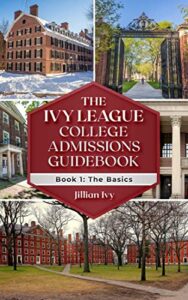Things You Can Do to Boost Your Ivy League Application!
If you’re applying to an Ivy League college you already know that high grades, tons of AP classes, stellar SAT scores, unique extracurriculars, and fantastic teacher recs can all play a role in your application and acceptance to some of the most prestigious colleges in America. Read the following things that can help you to Boost Your Ivy League Application.
The following are top ten tips though that you may not have thought of that when, combined with the standard qualifications above (i.e. stellar GPA, etc), can actually serve to help you get in!
- Social Media: Schools check. So, that said, you want to make sure that there is nothing crude or lewd on your facebook page and you’re not making extreme non-pc comments all over twitter. It’s okay to show yourself having fun with your friends, and you certainly don’t have to show yourself as 100% scholarly and serious (it is a social outlet, after all), and you’re even allowed to have an opinion that maybe other people don’t necessarily agree with, but just keep in mind that the college admission officers are trying to get a sneak peak and quick overview of who you might be online. If you think your fb page shows you as an all around great person with dedicated intellectual and creative interests and great humanitarian projects under your belt (and on your page) then let them look. It could help you. More often than not though, it won’t. Personally, I’d set my fb page to private right now to block anyone who isn’t a known friend. After all, why take the risk?
- Send your interviewer a thank you email: This is another tip that some might think of, and some won’t. Sending a very BRIEF thank you, if you do in fact have your interviewer’s email address (some schools do not make this available). This is a sign of having good manners, which translates into a sign of strong upbringing and class. The Ivy League especially is deciding whether you fit into their school culture. Not only if you have the grades to succeed. Sending a thank you (just 2-3 sentences at most- don’t go longer) can leave a positive impression in your interviewer’s eyes. And that translates to a positive feeling when they sit down to report on their interview with you. This can help to get you in!
- Mention legacy: Do you have a family member who went to the school? If not that that particular college, did they go to another college within the Ivy League. If so, mention it. Don’t feel like you’re bragging. The Ivy League universities value “legacies” highly. So even though it’s usually a question on the application, mention it during your college interview, as well. The Ivy League in particular loves tradition and preserving and honoring family lines. If your mom went to Columbia and your dad is a Harvard grad = mention it. Believe me, it will help.
- Mention 1st Generation: As an alternative to the above, perhaps you’re the first one in your family to ever even go to college! If this is you, don’t worry, MENTION IT – somewhere in your essays. Again, this will only help you.
- Are you a twin? Yes, I know this one isn’t going to apply to most people, but it’s worth mentioning. The Ivy League in particular loves admitting twins who are equally ambitious and have the required credentials. So, if you’re a twin – identically or fraternal – this should be everywhere in your college essays, and specifically at least mentioned in you Common App. The colleges like anything and everything that makes you unique. And having a twin or sibling that is going to be in the same incoming calls puts you in that “special and unique” category. Especially if you’re special and unique and can stand out in others areas, as well!
Those are just a few helpful tips that you might not find elsewhere regarding how to make your college applications. And especially your Ivy League college applications stand out even more.
Stay tuned in the coming days for even more, and check out my other Ivy League Essay articles, here: https://ivycollegeess.wpengine.com/2017/05/01/top-5-books-to-read-before-applying-to-an-ivy-league-college/
[I’m a former Harvard admissions interviewer and a Harvard graduate, and currently run the Ivy League Essay college admissions firm: www.IVY COLLEGE ESSAY.com Contact me for a free consultation today!]


















